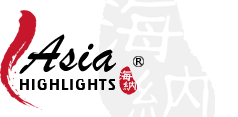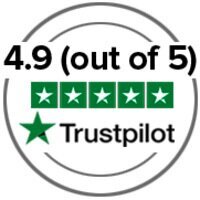Thailand is known as the "Land of Smiles", but also as the "Land of Buddhism". Thai society and culture have been influenced by Theravada Buddhism, practiced by about 93% of the whole population. It's no wonder that many travelers go to Thailand to learn about Buddhism and meditation.
 Religion in Thailand
Religion in ThailandThailand is also a country with religious freedom. Besides Buddhism, there are four other religions recognized by official laws: Hinduism, Islam, Judaism, and Christianity.
Quick Facts about Religions in Thailand
| Religion in Thailand | Followers by Population Percentage |
|---|---|
| Buddhism | 93.46% |
| Muslim | 5.37% |
| Christianity | 1.13% |
| Hinduism | 0.018% |
| Judaism | 0.001% |
| Other religions | 0.002% |
Discover real reviews of Highlights Travel Family's best-rated service across trusted platforms.

 
|
Bangkok and Chiang Mai
In Bangkok, our guide Ann and driver "Mr. Ot" (I don't know how to spell his name) were very friendly and professional. You simply can't underestimate the value of having an English speaking guide to show you around, and a driver with a comfortable, sizeable, air-conditioned van take you from place to place. Ann taught us so much about Thailand's history, food, and religion. Mr. Ot always opened our door with a smile, and had cool towels and ice-cold bottled water for us. More
, Apr 2024
|
Very great experience our driver D was…
Very great experience our driver D was never late and always had waters and a cold towel for us and our tour guide Som was very informative and had amazing English I recommend them both highly for anyone else traveling More
Rylan Coache, Feb 2024
|
Excellent guide in Siem Reap
Our recent time spent in Siem Reap was made even more memorable by our expert guide, Som Piseth. Som was knowledgeable, attentive, flexible and super helpful - we learnt so much about Siem Reap and Cambodia in our 3 days with him. His English was excellent and his knowledge of, and pride in, his country was outstanding. We would highly recommend Som for anyone wanting an excellent guide in Siem Reap! More
Sharon Townshend, Feb 2024
|
Buddhism — The Main Religion in Thailand
Thai Buddhism belongs to the Theravada school. Buddhism came to Thailand around 250 BC and has been extremely important in the development of culture and society in Thailand from then on. Thai monarchs have long been regarded as the main patrons of Buddhism in the country, and, over the centuries, they contributed to the pervasion of Buddhism, with the construction of temples, monasteries, and schools.
 Thai Buddhism
Thai BuddhismHistory
The Theravada school of Buddhism comes from Sri Lanka and is the backbone of Thai Buddhism. The doctrinal core of the school is found in the Pāli canon (Pāli is a language from the Indian subcontinent).
Theravada Buddhism is characterized by conservative views about doctrine and monastic discipline, and it strongly believes that insight must come from the aspirant's experience, application of knowledge, and critical reasoning.
Thai Buddhism has also been influenced by Hindu beliefs, coming mostly from Cambodia during the Sukhothai Kingdom (around the 14th century). Hindu beliefs played an important role in the creation of law and order in Thai society, and many rituals practiced nowadays also come from Hinduism.
The importance of Hinduism has decreased under the Chakri Dynasty (1782–present), but shrines to the Hindu god Brahma are still seen all around the country.
Practices
Buddhism is a key component of the daily lives of many Thais. Daily offerings are given to the spirit houses, small tokens are left in the temples around the cities, and street dogs (soi) are fed to make merit. Merit-making, a fundamental concept in Buddhism, is what leads the lives of devotees.
Merit-making is done by monastics and laypeople, and it is achieved with mindfulness, meditation, chanting, and other rituals, as well as acts of kindness. This concept is so important in Buddhism that most of the daily actions of devotees are aimed towards it.
By making merit, Buddhists believe they will gain a protective force that will help them in this life and on the path to reach enlightenment. People usually pursue merit-making for direct benefits in this world. However, in old age, people tend to make merit for the next life.
 Thai Buddhist Statue
Thai Buddhist Statue"Cleansing" is an important concept in Buddhism. Burning incense is an action full of complex symbolic meanings. First of all, it is a sacred offering and a way of honoring the Buddha. The fragrant smoke of the incense stick teaches the necessity to burn away negative qualities and try to reveal the pure self within us.
The strong aroma purifies the air of the wat (temple) and the house, and it can inspire devotees to develop a pure mind. The scent spreads all over the rooms, as the effects of good actions bring benefits to many.
The Buddhist Population
In Thailand, there are about 300,000 monks. Every man, before he turns 20, is required temporarily to become a monk (for about two or three months) to make merit and receive good karma. It is an important rite of passage that signifies the transition from youth to adulthood.
When men decide to become monks, they must go through many rituals. They have to shave their heads and their eyebrows; they have to accomplish daily tasks inside the wats; and they have to respect hundreds of rules, e.g., they cannot laugh or speak loudly.
Many wats have monk chats. Everyone can sit down and chat with a monk and ask about their lives.
Other Religions in Thailand
Although the official law of Thailand requires that the King must be a Buddhist, Thailand is a county where people have religious freedom. Although overwhelmingly the major religion is Buddhism, other religions in Thailand include Islam (5+%) and Christianity (1+%), with the remaining 0.04% (~27,000 people) divided between Hinduism, Sikhism, Judaism, folk religion, the non-religious, and others.
 Muslim in Thailand
Muslim in ThailandIslam in Thailand
Muslims form the second largest religious group in Thailand, who make up about 4.6% of the population of the country. Most of the Muslim communities live in the south of Thailand, including Bangkok. Muslims in Thailand have mostly come from other South Asian countries, such as Indonesia, China, Malaysia, Pakistan, Bangladesh, Cambodia, and so on.
Christianity in Thailand
Christianity was introduced into Thailand in the 1550s by European missionaries. It played an important role in Thailand's modernization. The population of Christians in Thailand is about 1%. The five major Christian church denominations legally recognized by the Thai government are the Church of Christ in Thailand (the largest denomination), the Evangelical Fellowship of Thailand, Southern Baptists, Seventh-day Adventists, and the Roman Catholic Church (40,000+).
Hinduism
 Hinduism
HinduismIn its earliest time, Thailand was ruled by the Khmer Empire (802–1431 — a Hindu-Buddhist empire centered in Cambodia's Angkor), but Hinduism waned after that era. There are several thousand Hindus of Indian origin living in many big cities of Thailand today, which make up less than 0.1% of the population of Thailand. They worship Hindu deities, such as Shiva, Indra, and Ganesh. Most of the Thailand's Hindus practice Brahmin rituals directed towards various Hindu gods.
Judaism
Judaism was introduced to Thailand in the 17th century. There are about 1,000 Jewish people living in Chiang Mai, Koh Samui, Phuket, and Bangkok. Jewish communities only make up a small part of Thailand's population.
Thai Folk Religion
 Thai Folk Religion
Thai Folk ReligionBesides the main religions that have come to Thailand from elsewhere, there are a small part of the population who worship their own local gods and ancestors. They are known as the Siamese people who live in northern Thailand.
Similar to Chinese folk religion adherents, Siamese people worship their gods and ancestors on certain days or festivals. Many of them burn incense and offer sacrificed meat to their worship ancestors or gods.
Freedom of Religion in Thailand
In Thailand, the government respects the principle of freedom of religion. Registered religious groups enjoy the legal right to practice. Although unregistered religious groups have not been accepted into the governmental legal system, they are currently still allowed to operate freely. There is no widespread abuse or discrimination based on religious belief or practice in Thai society.
Asia Highlights Experience
Of the many things that shape a culture, religion is one of the most important. Travelling to Thailand means immersing yourself in the Thai Buddhist culture and society, trying to learn more about the daily lives of the devotees and of the monks, and visiting stunning temples built all over the country to honor the Buddha.
Asia Highlights can assist you in planning your trip and ensuring a hassle-free experience. Our knowledgeable staff will help you choose your destinations and the best accommodation, so you will only have to focus on your experience and what you can get from it.
Check out the following links and learn more about our tours:
13-Day Essence of Thailand Tour
14-Day Myanmar and Thailand Essence Tour
15-Day Myanmar, Thailand and Bali Honeymoon
You might like to read
Why Asia Highlights (10,000+ reviews & 98.8% 5-star rating)
- Save Your Time:
- Less research, more enjoyment!
- Real-time 1V1 expert planning
- Maximize Your Flexibility:
- Personal local guide and ride
- Explore at your own pace
- Celebrate Your Journeys:
- Specially-crafted family adventures
- Celebrate milestones with style!
Get Inspired with Some Popular Itineraries
At Asia Highlights, we create your kind of journey — your dates, your destinations, at your pace. You can have any trip tailor made for your travel.

